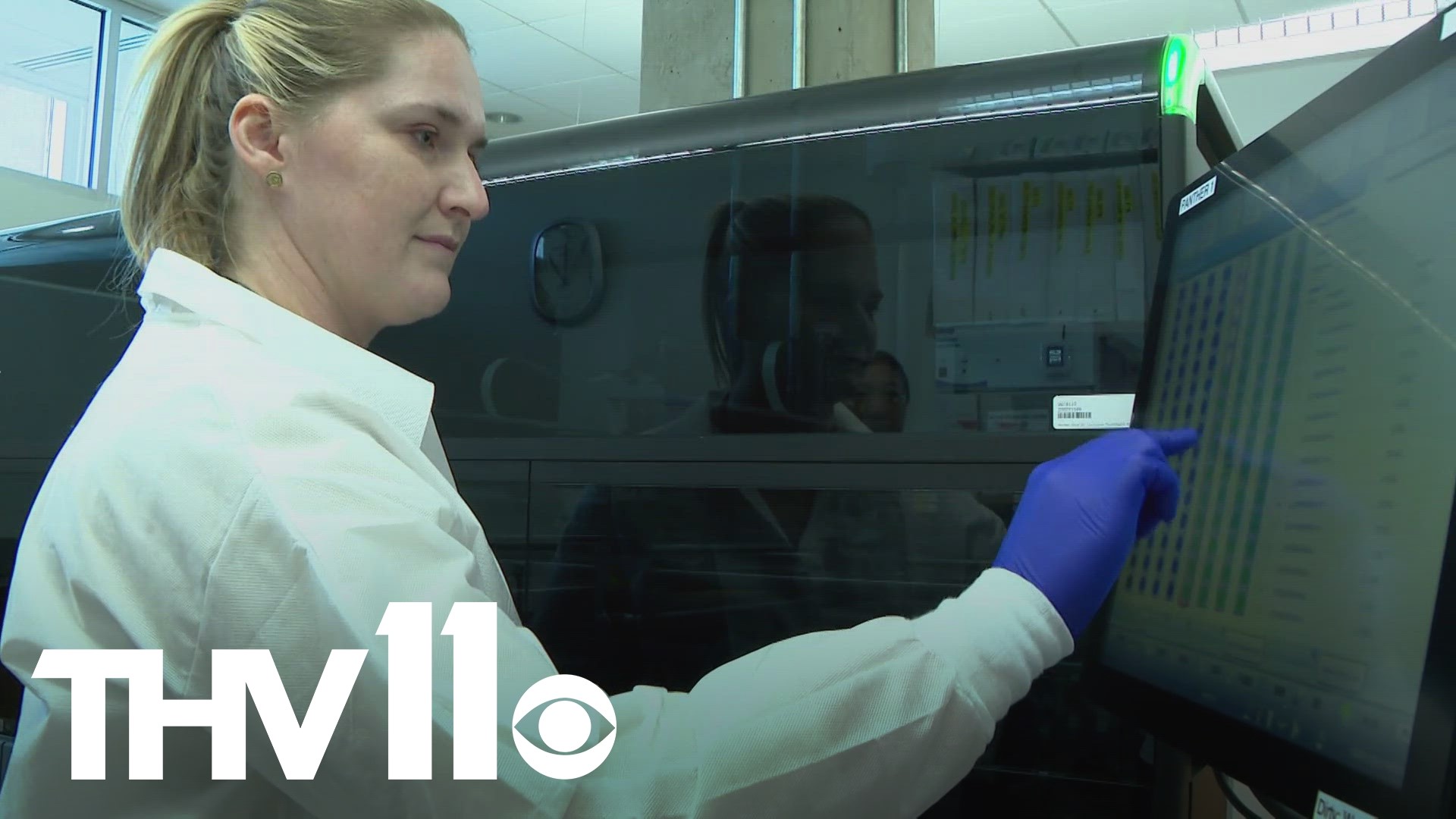LITTLE ROCK, Ark. — Whether it’s the common cold, the flu, or another type of infection or illness, you’ve probably taken medicine to help you recover.
If the illness is bacterial, then you’ve probably taken antibiotics.
But according to the Centers for Disease Control and Prevention, antibiotic resistance is an "urgent global public health threat."
The CDC said that antimicrobial resistance occurs when germs like bacteria and fungi develop the ability to defeat the drugs designed to kill them.
Dr. Naveen Patil is the infectious disease medical director at the Arkansas Department of Health. He said this is not just a global issue; the effects can also be felt in Arkansas.
"The CDC estimates almost three million drug-resistant infections occur yearly in the U.S.," Patil said. "From these, there are about 35,000 untreatable infections in which people die."
Naveen said antibiotic resistance can occur naturally as bacteria mutate and grow more resistant with time–it’s been nearly 100 years since penicillin was first discovered in London in 1928.
The overuse of antibiotics and the misuse of antibiotics only exacerbate this issue.
Though there are benefits to using antibiotics, a 2018 CDC study found that Arkansas is one of the top prescribing states in the country.
But Patil took it further and said Arkansas has an overprescribing issue, contributing to antibiotic resistance.
Arkansans are taking antibiotics at a high rate, and Patil said it averages out to one at least.
Health officials are now stressing the importance of being patient when you fall ill and not being so quick in asking prescribers for antibiotics.
“We do not want to return to the dark ages," Patil said. "Commonly treated infections could become resistant, and we might have increased sickness... One of the issues contributing to antibiotic resistance is prescribing antibiotics when they’re not needed."
Patil said antibiotics are overprescribed or wrongly prescribed too often.
“Antivirals treat viral infections; antifungal treats fungus,” Patil said. "You don't treat an infection for 15 days when you only need three or five days."
Pulaski Academy teacher Rissa Nettles said she's constantly around children and frequently falls sick.
"Before school was out, I went to the doctor, and I thought it was just a cold or a sinus infection," Nettles said. "I received an antibiotic, which was a Z-pak."
Nettles explained it was difficult for her to recover as her antibiotics were not responding immediately, which landed her back in the doctor's office.
"I asked this time to have a strep test," Nettles said. "To have a flu test, a COVID test and chest x-rays."
Nettles had pneumonia, and doctors immediately switched her antibiotics and treatment.
“I received an antibiotic shot, an injection, a steroid injection, oral steroids and oral antibiotics,” Nettles said.
Nettles eventually recovered but said there should be increased testing before antibiotics are prescribed.
“I know doctors see so many patients during the day," Nettles said. "I often heard, ‘Oh well, we've seen a lot of strep today. It's probably strep,' or, 'Oh well, I've seen a lot of sinus infections. It's probably a sinus infection.’"
Patil agreed that additional testing might help preserve our existing antibiotics and limit resistance.
“We are having a nationwide problem of a shortage of antibiotics,” Patil said. “[Antibiotics are] in shortfall throughout the country, and that's a big problem in our state."
But what happens if antibiotic resistance continues or additional antibiotics aren't developed?
According to the World Health Organization, pharmaceutical companies are developing new antibiotics, but its website states they aren't "expected to be effective against the most dangerous forms of antibiotic-resistant bacteria."
Patil said more investment is needed if we truly want to combat antibiotic resistance.
“Every year, there is more diabetes, blood pressure and Alzheimer’s coming out because there is a lot of money in those drugs," Patil said. "But there's not much money invested in antibiotics."
Although doctors are concerned about the overuse of antibiotics, health officials say that proper diagnoses, reducing overprescriptions and increasing awareness are essential for now.
“Antibiotics are a precious resource available to us," Patil said. "We should probably try to preserve it as much as possible."

